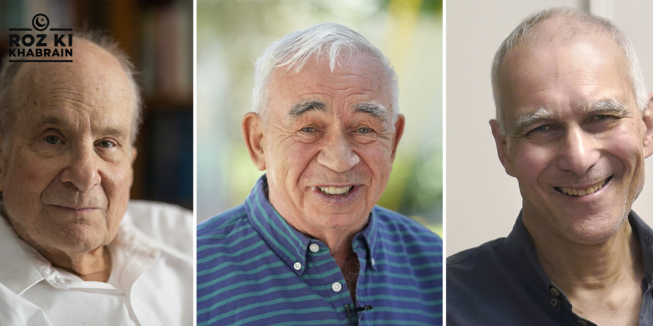STOCKHOLM: Americans David Baker and John Jumper, along with British scientist Demis Hassabis, were awarded the Nobel Prize in Chemistry on Wednesday for their groundbreaking work in uncovering the secrets of proteins using computing and artificial intelligence.
The trio was recognized for their achievement in deciphering protein structures, which are fundamental to life, with the Nobel committee praising their research for its “enormous potential” across various fields.
David Baker, 62, received half of the award for his contributions to “computational protein design,” while the other half was shared by Hassabis and Jumper for their work on “protein structure prediction.” The committee noted that Baker accomplished the nearly impossible task of creating entirely new types of proteins.
In the early 2000s, Baker developed a novel protein known as Top7, which differed significantly from any previously known proteins. The Nobel jury described this breakthrough as a “bolt from the blue” for researchers in protein design, as earlier efforts had only managed to mimic existing structures. His work has paved the way for proteins that could lead to new nanomaterials, targeted pharmaceuticals, expedited vaccine development, efficient sensors, and a more environmentally friendly chemical industry.
Hassabis and Jumper, associated with the AI research lab Google DeepMind, were recognized for their development of an AI model that addresses a longstanding challenge: predicting complex protein structures. They gained notoriety when their AlphaGo model defeated the champion of the ancient board game Go.
Hassabis, 48, who is the CEO and co-founder of Google DeepMind, and Jumper, born in 1985, were among those speculated to be in contention for this year’s Nobel Prize for their contributions to the AI model AlphaFold, which received the prestigious Lasker Award in 2023. AlphaFold predicts the three-dimensional structure of proteins based on their amino acid sequences, with its database now housing predictions for over 200 million proteins.
Expressing his enthusiasm, Hassabis stated that he is excited about the myriad ways protein design can improve the world, particularly in health, medicine, technology, and sustainability. “Our new AI methods are significantly more powerful than traditional scientific approaches,” he emphasized.
During a press conference in London, Hassabis shared that he has dedicated his life to AI and has always envisioned the transformative potential of technologies like AlphaFold for the betterment of society. “I’ve always believed that this would be one of the most transformative technologies in human history,” he remarked.




